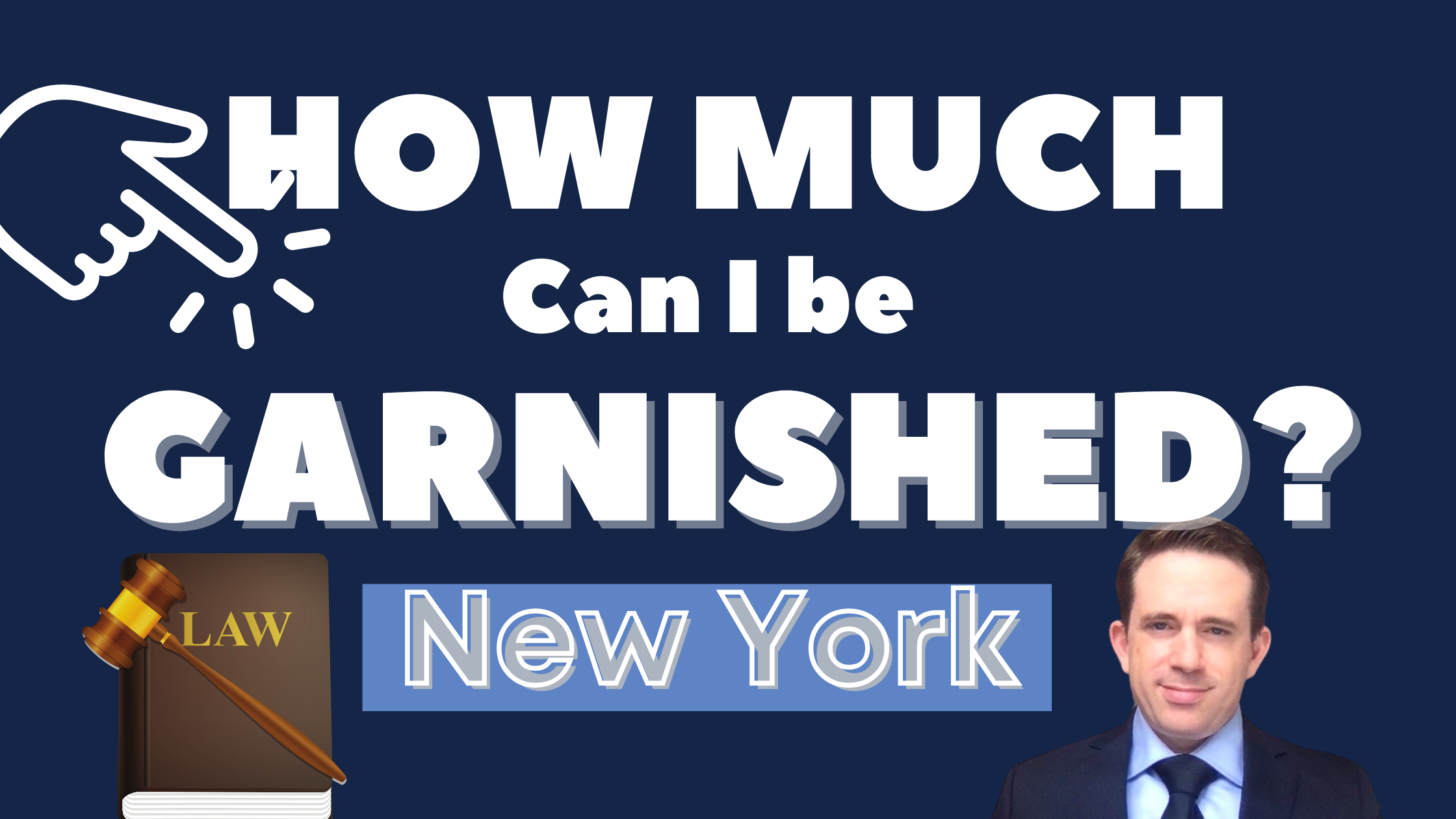We Defend You Against
Jefferson Capital Systems, LLC
The Langel firm will defend consumers against New York state court collection lawsuits brought by Jefferson Capital Systems, LLC. In appropriate cases, we may investigate claims against Jefferson Capital Systems, LLC for violations of the Fair Debt Collection Practices Act, Fair Credit Reporting Act, and other applicable laws.
Jefferson Capital Systems, LLC is often represented by Kirschenbaum & Phillips, P.C. and Forster & Garbus, LLP.
Jefferson Capital Systems, LLC purchases defaulted consumer debt to collect
and sue on them. Jefferson Capital Systems, LLC is a foreign limited liability
company incorporated in Georgia and is principally located at
16 McLeland Road St. Cloud, MN 56303
Here are complaints lodged against Jefferson Capital Systems, LLC with the Better Business Bureau.
If you need help, call us at (888) 271-7109, or complete thisform.
Break in Debt Assignment Chain Leads to Court Sanctions in Midland Funding LLC v. Wallace Case
3 Takeaways from Midland Funding, LLC v. Wallace:
-
Valid Assignments Matter: In debt cases, a complete chain of debt assignment is essential for the claim's validity. Here, the court found only the assignment from Jefferson Capital Systems, LLC to Midland Funding LLC to be valid, which wasn't sufficient as the complete chain was necessary for a judgment against the consumer.
-
Lack of Complete Evidence Proved Costly: The plaintiff's counsel failed to provide admissible evidence of the entire chain of debt assignment, which was crucial to their case. This lack of evidence led the court to deem their conduct as "frivolous," and resulted in a monetary sanction against the plaintiff's representing law firm.
-
Sanctions for Frivolous Conduct: The court deemed the lack of efforts by the plaintiff's counsel to secure the necessary documentary proof before commencing the action or obtaining a default judgment against the consumer as frivolous conduct. This instance underscores the importance of obtaining and presenting complete documentation when initiating legal action.
In Midland Funding LLC v. Wallace (N.Y. City Ct. Mt. Vernon 2012), the court found that an Assignment of Accounts from Jefferson Capital Systems, LLC to Midland Funding LLC was the only valid assignment in an underlying matter concerning a default judgment against a consumer.
To support its contention that the judgment against the consumer was valid, plaintiff's counsel produced an Assignment of Accounts from Jefferson Capital to Midland. A sworn statement from the Manager of Portfolio Sales for Jefferson Capital was also produced. In his statement, the Manager of Portfolio Sales swore that CompuCredit Corporation is the parent corporation of Jefferson Capital and that CompuCredit "acquire[s] certain credit card accounts […and…] that after the accounts are charged off by CompuCredit the accounts are transferred and assigned to Jefferson Capital." It was also sworn that Jefferson Capital subsequently sold many accounts to Midland Funding, pursuant to the Assignment of Accounts.
In the underlying matter, the court found that plaintiff's counsel was "unable to present admissible evidence of the entire chain of assignment" of the debt. An assignment from the original creditor (with whom the consumer allegedly entered into the credit card agreement) to CompuCredit Corporation was missing, as was the alleged assignment from CompuCredit Corporation to Jefferson Capital. The only valid assignment in support of the judgment against the consumer was the assignment from Jefferson Capital to Midland.
The Court found that the failure of plaintiff's counsel to "obtain the requisite documentary proof of the claim alleged, including the entire chain of assignment(s) either prior to commencing the instant action or to obtaining a default judgment against [the consumer] constitutes frivolous conduct." The Court thus imposed a monetary sanction against the law firm representing the plaintiff.
Pattern of Complaints Lodged Against Jefferson Capital Systems, LLC
The recurring patterns of complaints against Jefferson Capital Systems, LLC, as reflected in the Better Business Bureau complaints, are as follows:
-
Denial of Debt: The denial of liability for the debt assigned to Jefferson Capital Systems continues to be a consistent complaint across all customers. They claim they do not owe this debt and have no contractual relationship with Jefferson Capital.
-
Lack of Original Contract: Customers consistently complain that Jefferson Capital Systems failed to provide them with the original contract that they requested. This contract would validate the claimed debt.
-
Unfamiliarity with the Company: Some customers state they are not familiar with Jefferson Capital Systems or the original debtor. They assert they have never been contacted by the company before noticing a collection on their credit report.
-
Inappropriate Reporting: A complaint suggests that Jefferson Capital Systems' reporting of the debt to credit bureaus might be violating the Fair Credit Reporting Act. This indicates potential issues with their reporting practices.
-
Claims of Identity Theft: In one of the new complaints, a customer claims that the debt is the result of identity theft. This points to potential issues with verifying the identity of the individuals associated with the debts that they are trying to collect.
-
Unsatisfactory Product/Service: All of these complaints fall under the complaint type "Problems with Product/Service", which indicates a more general issue with the way Jefferson Capital Systems manages its debt collection process or communicates with its customers.
Consumer-Plaintiff's Failure to Respond to Court Order Results in Dismissal: Savino v. Jefferson Capital Systems, LLC
In Savino v. Jefferson Capital Systems, the court dismissed the plaintiff's case due to lack of prosecution and noncompliance, as the plaintiff did not respond to a court order or communicate with the court despite warnings. The case was initially put on hold pending the decision of similar cases in the Second Circuit, but after the plaintiff's failure to respond following the decisions, the case was dismissed.
3 Key Points:
- The case was put on hold while waiting for the decisions in Dow v. Frontline Asset Strategies and De La Cruz v. Financial Recovery Services, which presented similar issues.
- Following the decisions in these cases, the plaintiff was ordered to show cause why its case case should not be dismissed but failed to respond.
- The court dismissed the case citing Rule 41(b), due to the plaintiff's failure to prosecute or comply with court orders.
Case Citation: Savino v. Jefferson Capital Sys., LLC, 18CV7254JMASIL, 2020 WL 376637, at *1–2 (E.D.N.Y. Jan. 23, 2020).
Dow v. Frontline Asset Strategies Ruling and its Relevance to the Savino Case (Perception of Accruing Interest)
In Dow v. Frontline Asset Strategies, LLC, Marlyn Dow, the appellant, claimed that the collection notice she received from Frontline Asset Strategies was misleading, thereby violating Section 1692e of the Fair Debt Collection Practices Act (FDCPA), which prohibits any false, deceptive, or misleading representation in connection with the collection of any debt. Dow argued that the notice could cause the least sophisticated consumer to mistakenly believe their debt was dynamic, or accruing interest, when in fact it was static, or not accruing interest. However, the court disagreed, affirming that a collection notice that fails to disclose that interest and fees are not currently accruing on a debt is not misleading within the meaning of Section 1692e of the FDCPA, upholding the decision of the District Court (Dow v. Frontline Asset Strategies, LLC, 783 Fed. Appx. 75, 76–77 (2d Cir. 2019)).
The relevance to the Savino case arises from the fact that the Savino case seemed to involve similar issues under the FDCPA, and the court had stayed (paused) the Savino case pending the Second Circuit's decisions in the Dow case and the De La Cruz case. After the Dow decision was issued, the court in the Savino case asked the plaintiff to explain why her case should not be dismissed in light of the Dow decision. The plaintiff's failure to respond eventually led to the dismissal of her case. The Second Circuit's decision in Dow had effectively set a legal precedent that was applicable in the Savino case.
Flexpoint Ford, LLC Announces its Acquisition of Jefferson Capital Systems, LLC, and Anticipates Growth
On August 3, 2012, Flexpoint Ford, LLC, a private equity firm, announced that it acquired Jefferson Capital from CompuCredit Holdings Corporation.
President and CEO of Jefferson Capital, David Burton, stated that "the acquisition by Flexpoint Ford provides incremental growth capital allowing [Jefferson Capital] to better serve [its] existing clients and expand [its] services to new market segments."
Vice President of Flexpoint Ford, Michael Tyree, added that "Jefferson Capital's diversified business lines allow them to stay nimble and opportunistic in their purchases. [Jefferson Capital's] attractive returns on capital, along with the new financing facility and strong management team, should enable the Company to create significant value."
CompuCredit Holdings Corporation sold Jefferson Capital to Flexpoint Ford for $130.5 million.
Contact The Langel Firm at (888) 271-7109 for representation in your lawsuit.
More information to help with a wage garnishment:
- Receive a Notice of Garnishment? Here’s a Summary of New York Law
- How much of my wages can be garnished? Summary of New York Law
- Vacating a Default Judgment in New York: 8 Fine Points
Here is a list of New York City’s Marshals who enforce wage garnishments:
- City Marshal Ronald Moses
- City Marshal Bruce Kemp
- City Marshal Gregg E. Bienstock
- City Marshal Martin Bienstock
- City Marshal Henry Daly
If you need help, call us at (888) 271-7109 or complete this form.




